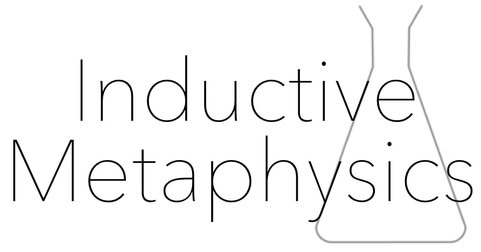DFG Research Unit FOR 2495.
Spokesperson 2020-2023: Gerhard Schurz (Heinrich Heine University Düsseldorf).
Spokesperson 2017-2020: Andreas Hüttemann (University of Cologne).
Principal Investigators: Andreas Bartels (2017-2020), Elke Brendel (Bonn, 2020-2023), Brigitte Falkenburg (Dortmund 2017-2020), Kristina Engelhard (Trier, 2020-2023), Vera Hoffmann-Kolss (Cologne and Bern, 2017-2023), Andreas Hüttemann (Cologne, 2017-2023), Marie Kaiser (Bielefeld, 2020-2023), Dennis Lehmkuhl (Bonn, 2020-2023), Oliver Scholz (Münster, 2017-2023), Markus Schrenk (Düsseldorf, 2017-2023), Gerhard Schurz (Düsseldorf, 2017-2023).
DFG-funded researchers: Karim Baraghith, Javier Suárez Díaz, Kristina Engelhard, Christian J. Feldbacher-Escamilla, Filippo Ferrari, Alexander Gebharter, David Hommen, Fabian Hundertmark, Siegfried Jaag, Jan Philipp Köster, Christian Loew, Elisabeth Muchka, Nina Nicolin, Niklas Parwez, Christian Röcken, María Ferreira Ruiz, Ansgar Seide, Maria Sekatskaya, Kian Salimkhani, Lorenzo Spagnesi, Noah Stemeroff, Bram Vaassen, Martin Voggenauer.
Spokesperson 2020-2023: Gerhard Schurz (Heinrich Heine University Düsseldorf).
Spokesperson 2017-2020: Andreas Hüttemann (University of Cologne).
Principal Investigators: Andreas Bartels (2017-2020), Elke Brendel (Bonn, 2020-2023), Brigitte Falkenburg (Dortmund 2017-2020), Kristina Engelhard (Trier, 2020-2023), Vera Hoffmann-Kolss (Cologne and Bern, 2017-2023), Andreas Hüttemann (Cologne, 2017-2023), Marie Kaiser (Bielefeld, 2020-2023), Dennis Lehmkuhl (Bonn, 2020-2023), Oliver Scholz (Münster, 2017-2023), Markus Schrenk (Düsseldorf, 2017-2023), Gerhard Schurz (Düsseldorf, 2017-2023).
DFG-funded researchers: Karim Baraghith, Javier Suárez Díaz, Kristina Engelhard, Christian J. Feldbacher-Escamilla, Filippo Ferrari, Alexander Gebharter, David Hommen, Fabian Hundertmark, Siegfried Jaag, Jan Philipp Köster, Christian Loew, Elisabeth Muchka, Nina Nicolin, Niklas Parwez, Christian Röcken, María Ferreira Ruiz, Ansgar Seide, Maria Sekatskaya, Kian Salimkhani, Lorenzo Spagnesi, Noah Stemeroff, Bram Vaassen, Martin Voggenauer.
PROJECT DESCRIPTION
The overall purpose of the research unit is to articulate and elaborate a new understanding of the nature and methodology of metaphysics. Borrowing a term from late 19th century philosophy, the resulting conception of metaphysics is called Inductive Metaphysics.
We argue that, in general, metaphysical beliefs should not and cannot be adequately justified solely on a conceptual and a priori basis. Empirical sources and inductive or abductive forms of inference should and in fact do play a much more prominent role in metaphysics than is typically acknowledged. An important share of metaphysical beliefs should be justified a posteriori, based on inductive or abductive inferences from empirical data, embedded in a methodology that resembles that of science, except that metaphysical concepts and theories are transdisciplinary and more general than concepts and theories in science.
The research unit aims at developing a systematic account of the methodology and the empirical sources of Inductive Metaphysics. An essential means for achieving this aim is a combination of methodological or A-projects and application-oriented or B-projects. B-projects deal with selected metaphysical issues; they are original contributions to metaphysical research and at the same time they serve as test cases for A-projects. A-projects are concerned with historical and methodological investigations of Inductive Metaphysics; they use the results of B-projects as their input and deliver methodological questions and results to B-projects as their output. All three A-projects of the first three-year period shall be continued in the second period, with themes that are natural follow-ups of the results and open problems that emerged from the work in the first period. All B-projects of the first period are replaced by new B-projects, some of which bear important connections to predecessor projects in the first period and others which bring entirely new thematic areas into the range of application of Inductive Metaphysics.
hosted by: Institut fuer Philosophie der Heinrich-Heine-Universitaet Duesseldorf
funded by: Deutsche Forschungsgemeinschaft (DFG)
We argue that, in general, metaphysical beliefs should not and cannot be adequately justified solely on a conceptual and a priori basis. Empirical sources and inductive or abductive forms of inference should and in fact do play a much more prominent role in metaphysics than is typically acknowledged. An important share of metaphysical beliefs should be justified a posteriori, based on inductive or abductive inferences from empirical data, embedded in a methodology that resembles that of science, except that metaphysical concepts and theories are transdisciplinary and more general than concepts and theories in science.
The research unit aims at developing a systematic account of the methodology and the empirical sources of Inductive Metaphysics. An essential means for achieving this aim is a combination of methodological or A-projects and application-oriented or B-projects. B-projects deal with selected metaphysical issues; they are original contributions to metaphysical research and at the same time they serve as test cases for A-projects. A-projects are concerned with historical and methodological investigations of Inductive Metaphysics; they use the results of B-projects as their input and deliver methodological questions and results to B-projects as their output. All three A-projects of the first three-year period shall be continued in the second period, with themes that are natural follow-ups of the results and open problems that emerged from the work in the first period. All B-projects of the first period are replaced by new B-projects, some of which bear important connections to predecessor projects in the first period and others which bring entirely new thematic areas into the range of application of Inductive Metaphysics.
hosted by: Institut fuer Philosophie der Heinrich-Heine-Universitaet Duesseldorf
funded by: Deutsche Forschungsgemeinschaft (DFG)


